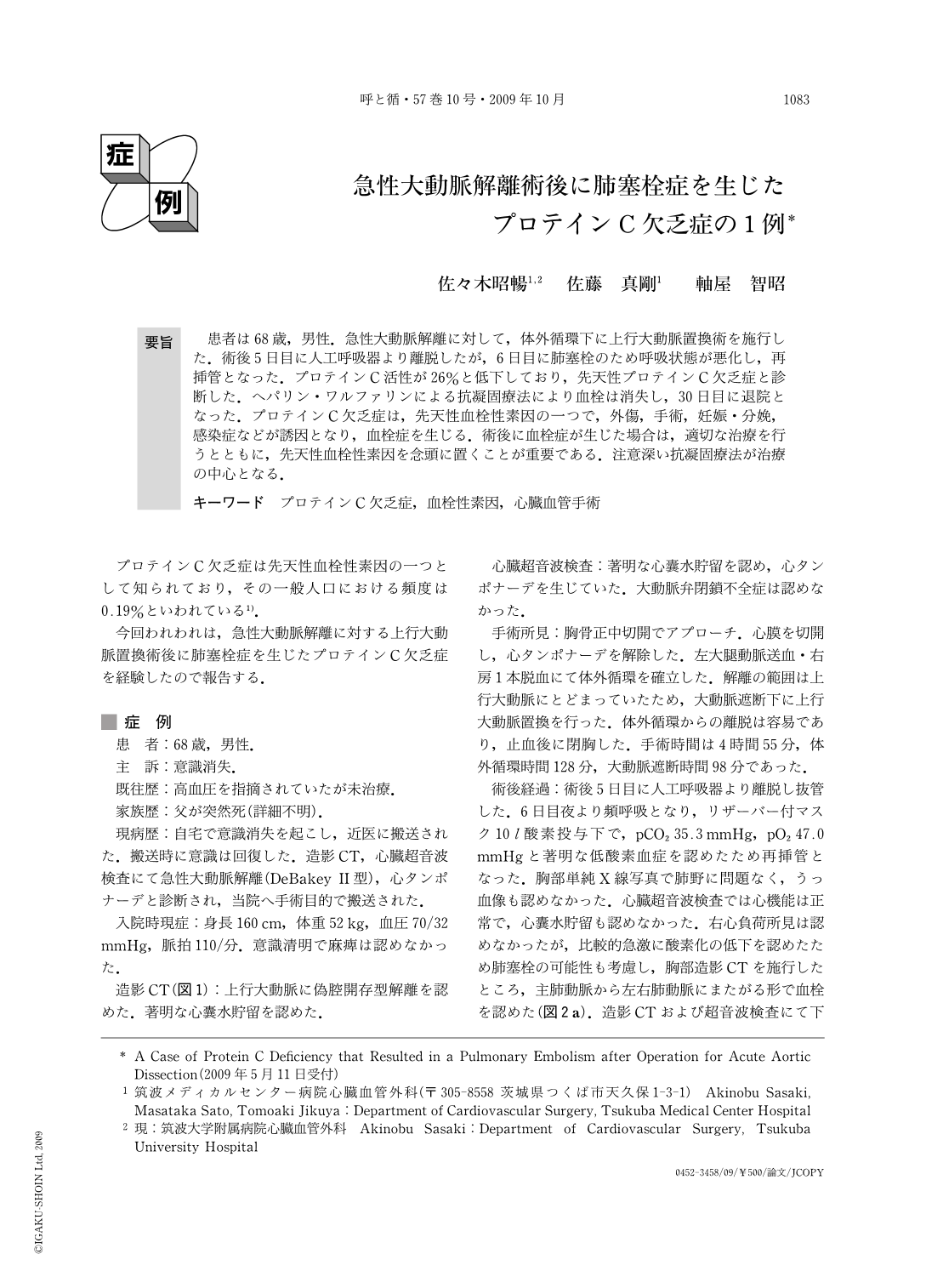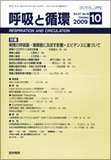Japanese
English
- 有料閲覧
- Abstract 文献概要
- 1ページ目 Look Inside
- 参考文献 Reference
要旨 患者は68歳,男性.急性大動脈解離に対して,体外循環下に上行大動脈置換術を施行した.術後5日目に人工呼吸器より離脱したが,6日目に肺塞栓のため呼吸状態が悪化し,再挿管となった.プロテインC活性が26%と低下しており,先天性プロテインC欠乏症と診断した.ヘパリン・ワルファリンによる抗凝固療法により血栓は消失し,30日目に退院となった.プロテインC欠乏症は,先天性血栓性素因の一つで,外傷,手術,妊娠・分娩,感染症などが誘因となり,血栓症を生じる.術後に血栓症が生じた場合は,適切な治療を行うとともに,先天性血栓性素因を念頭に置くことが重要である.注意深い抗凝固療法が治療の中心となる.
A 68-year-old male underwent ascending-aorta replacement under cardiopulmonary bypass for acute aortic dissection. He was extubated on postoperative day 5. However, his respiratory status worsened because of pulmonary embolism on day 7 and he was re-intubated. The patient was diagnosed as having protein C deficiency with an activity level of 26%. The thrombus disappeared under anticoagulant therapy using heparin and Warfarin. He was discharged on day 30. Protein C deficiency is one of the effects of congenital thrombophilia. It causes a thrombosis under the influence of various triggers, such as injury, surgery, pregnancy and/or delivery, an infectious disease and so on. When a thrombosis has occurred postoperatively, it is important to take congenital thrombophilia into consideration as a possible cause and careful anticoagulant therapy is required.

Copyright © 2009, Igaku-Shoin Ltd. All rights reserved.


